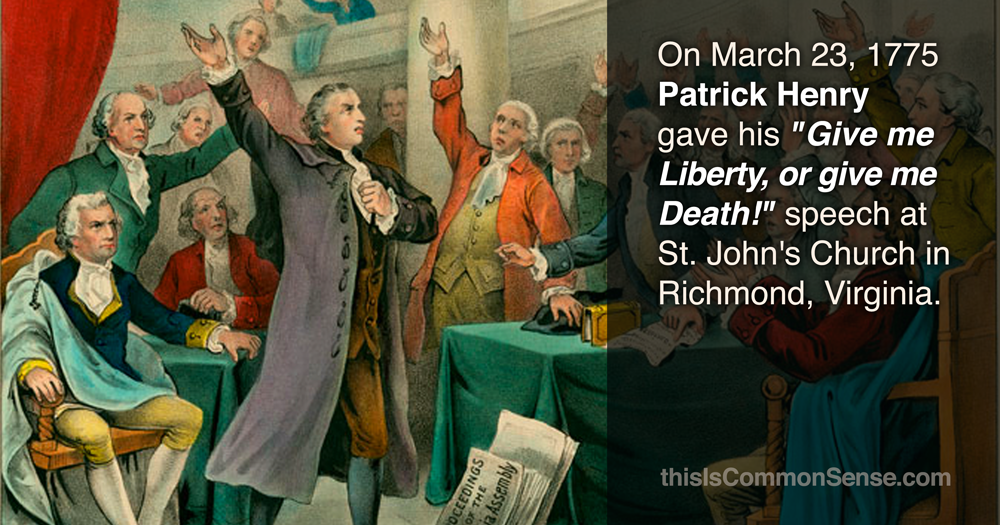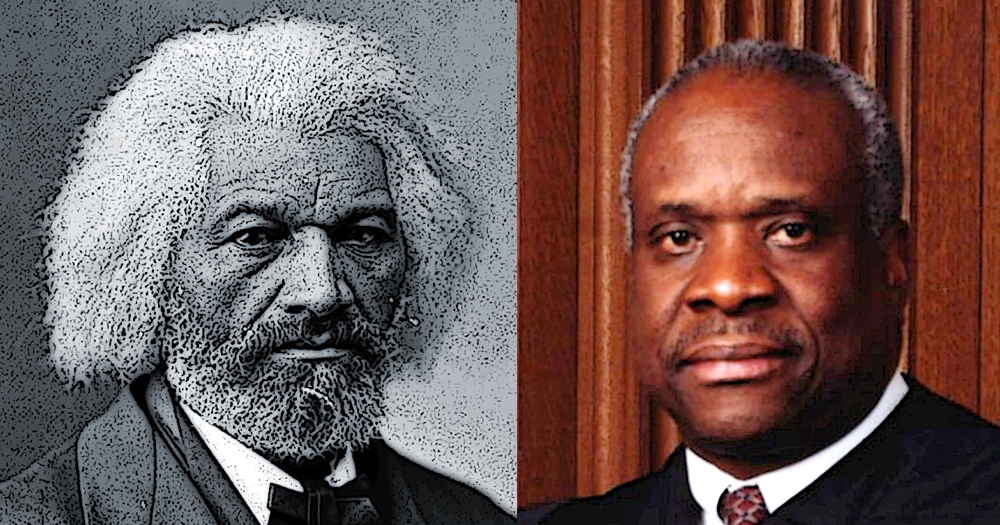Two hundred forty years ago, the situation was dire. In the Virginia Colony, not too far from where I live, representatives to the Second Virginia Convention were debating the problems they were having with their “masters” in Britain — and the more dangerous, violent situation that was developing to the north.
Several days into the convention, Patrick Henry spoke. His speech was rousing. And it changed minds, concluding with the famous words “give me liberty or give me death!” — an ultimatum quite stark indeed.
Mr. Henry was for action, and waiting no longer. Addressing himself to the president of the convention, he said, “Let us not, I beseech you, sir, deceive ourselves longer. Sir, we have done everything that could be done to avert the storm which is now coming on.” And they had done a great deal, engaging in
- petitioning
- remonstration
- supplication
and, Henry went on, had even “prostrated ourselves before the throne.” And they got worse than the cold shoulder for all their efforts. They got the brush-off, the turn of the cold robe. Along with troops of occupation.
Hence the need for serious action.
Then, Americans were wrestling with the world’s most powerful nation: the British Empire. Today we again face the world’s most powerful empire: our own.
A federal regime similarly out of control in terms of spending and debt, arrogance and corruption, intrusiveness and incompetence. As if dictated by a know-it-all king of old, or a cabal of insiders acting as oligarchs.
Then it was a far-off Parliament; today it is our own far out-of-it representatives … duly elected.
We are engaged in a sort of class war, insiders vs. outsiders, and it is the insiders who are bringing the country to the brink of collapse.
The biggest difference between 1775 and 2015? We haven’t done all we can. There is much more to do. And possibly even succeed before the doom of another financial collapse, sovereign debt crisis, or … worse.
It often seems a Herculean task, but as Mr. Henry implored, “Sir, we are not weak, if we make a proper use of those means which the God of nature hath placed in our power.”
Let’s join together to give ourselves, our loved ones, and generations hence liberty.
This is Common Sense. I’m Paul Jacob.
Printable PDF of the entire speech here
Get a high-resolution screensaver of this day’s image. Click on the thumbnail picture below to open a large version that you can download.




 HR 99 resolves that, “the members of the Missouri House of Representatives, Ninety-eighth General Assembly, hereby insist that each member of the Missouri Congressional delegation endeavor with ‘manly firmness’ and resolve to totally and completely repeal the Affordable Care Act, settling for no less than a full repeal.”
HR 99 resolves that, “the members of the Missouri House of Representatives, Ninety-eighth General Assembly, hereby insist that each member of the Missouri Congressional delegation endeavor with ‘manly firmness’ and resolve to totally and completely repeal the Affordable Care Act, settling for no less than a full repeal.” Republican Teddy Roosevelt and Democrat Woodrow Wilson defied the explicit intent of the Constitution’s authors — as written in The Federalist as well as in the state houses that adopted the new compact. Both presidents construed the Constitution as authorizing the federal government to do pretty much darn near anything not explicitly forbidden in the document.
Republican Teddy Roosevelt and Democrat Woodrow Wilson defied the explicit intent of the Constitution’s authors — as written in The Federalist as well as in the state houses that adopted the new compact. Both presidents construed the Constitution as authorizing the federal government to do pretty much darn near anything not explicitly forbidden in the document.